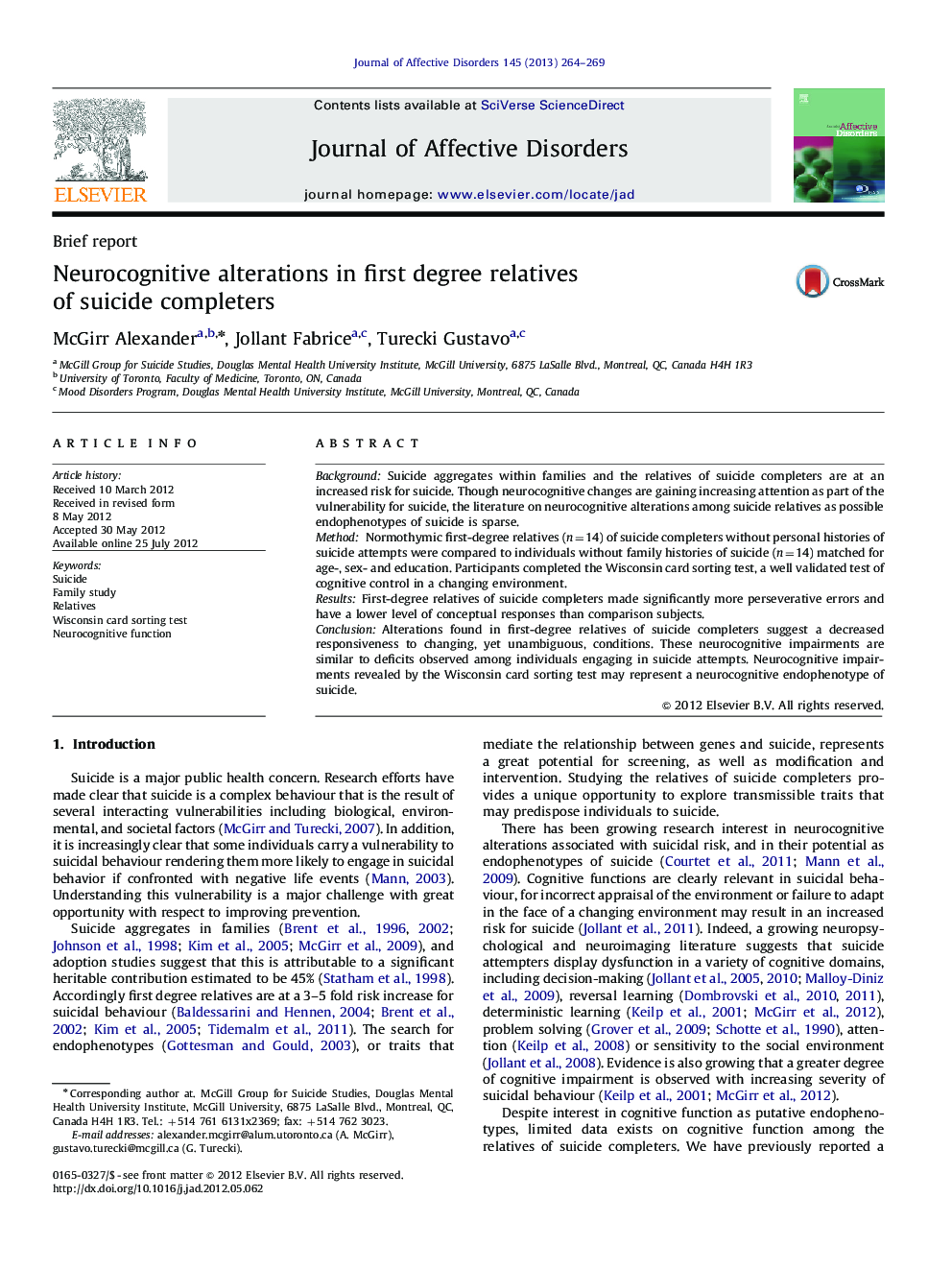| Article ID | Journal | Published Year | Pages | File Type |
|---|---|---|---|---|
| 4186104 | Journal of Affective Disorders | 2013 | 6 Pages |
BackgroundSuicide aggregates within families and the relatives of suicide completers are at an increased risk for suicide. Though neurocognitive changes are gaining increasing attention as part of the vulnerability for suicide, the literature on neurocognitive alterations among suicide relatives as possible endophenotypes of suicide is sparse.MethodNormothymic first-degree relatives (n=14) of suicide completers without personal histories of suicide attempts were compared to individuals without family histories of suicide (n=14) matched for age-, sex- and education. Participants completed the Wisconsin card sorting test, a well validated test of cognitive control in a changing environment.ResultsFirst-degree relatives of suicide completers made significantly more perseverative errors and have a lower level of conceptual responses than comparison subjects.ConclusionAlterations found in first-degree relatives of suicide completers suggest a decreased responsiveness to changing, yet unambiguous, conditions. These neurocognitive impairments are similar to deficits observed among individuals engaging in suicide attempts. Neurocognitive impairments revealed by the Wisconsin card sorting test may represent a neurocognitive endophenotype of suicide.
